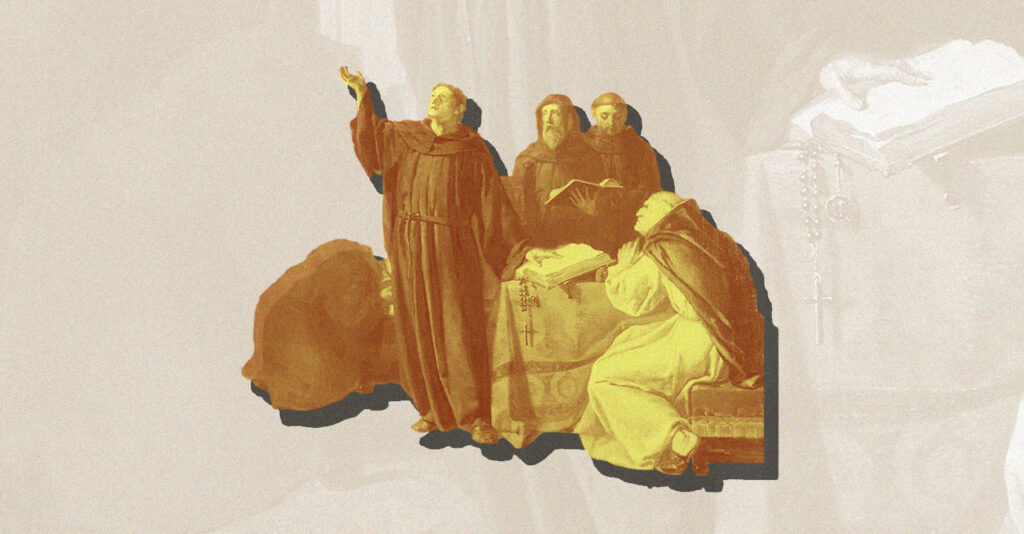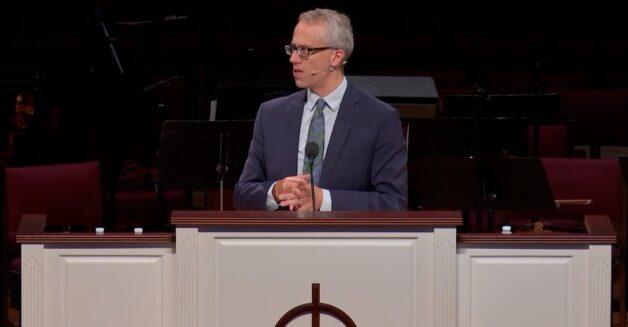
Reformation Day commemorates Martin Luther’s action in nailing the Ninety-Five Theses to the church door at Wittenberg on October 31, 1517.
Just as consequential were the events that transpired a little over three years later.
In January 1521, Pope Leo X excommunicated Luther and called upon him to defend his beliefs before the Holy Roman Emperor at an Imperial Diet in Worms. When the Diet took place that April Luther, did not stroll into Worms a confident man. On the first day he was so intimidated his statements could hardly be understood. Luther had reason to be afraid, for there were plans to banish Luther from the empire (or worse) if he did not recant his books.
The interrogation was no short affair, but by the end Luther had summoned his courage, concluding with these famous words: “My conscience is captive to the Word of God. Thus I cannot and will not recant, for going against my conscience is neither safe nor salutary. I can do no other, here I stand, God help me. Amen.”
On May 26, 1521, the emperor rendered his decision. Luther was to be placed under “ban and double ban.” The Edict of Worms enjoined the men and women of the empire “not to take the aforementioned Martin Luther into your houses, not to receive him at court, to give him neither food nor drink, not to hide him, to afford him no help, following, support, or encouragement, either clandestinely or publicly, through words or works. Where you can get him, seize him and overpower him, you should capture him and send him to us under tightest security.”
Nevertheless Luther would live to see another day. . . .and another. . . .and another. . . .and another, managing escape from the imperial snare, sometimes quite dramatically. But Luther didn’t know any of that when he took his famous stand at Worms. What he did know was that he was willing to endure expulsion and face the gravest bodily harm for the sake of his conscience.
And not “conscience” as some liberated, self-directed, autonomous feeling. But conscience held “captive to the Word of God.” It’s not an exaggeration to say that the history of the Reformation, the history of Germany, the history of Europe, the history of the Church, and indeed the history of the world were changed because Martin Luther refused to do and say what he knew in his head and heart to be wrong.
As Christians, we don’t think about the significance of our consciences as much as we should. Of course, the conscience is not infallible. It can be evil (Heb. 10:22), seared (1 Tim. 4:2), defiled (Titus 1:15), or weak (1 Cor. 8:7). But that doesn’t allow us to ignore our conscience. There are more than a dozen occasions where the New Testament makes a positive reference to the testimony of the conscience.
For example:
- Acts 23:1 “And looking intently at the council, Paul said, ‘Brothers, I have lived my life before God in all good conscience up to this day.'”
- Romans 9:1 “I am speaking the truth in Christ-I am not lying; my conscience bears me witness in the Holy Spirit.”
- 2 Corinthians 1:12a “For our boast is this, the testimony of our conscience.
- 2 Timothy 1:3 “I thank God whom I serve, as did my ancestors, with a clear conscience.”
- Hebrews 13:18 “Pray for us, for we are sure that we have a clear conscience, desiring to act honorably in all things.”
The conscience was not the final judge and jury in matters of the heart, but it is one of the most important witnesses to bring to the stand. Conscience-as the faculty within human beings that assesses what is right and what is wrong-is meant to be, as the Puritans put it, “God’s spy and man’s overseer.” It is our prosecuting attorney, bringing up offenses and producing guilty. And just as importantly, the conscience is our defense attorney, helping us face false accusations and slanders of the evil one (Rom. 2:14-15).
Conscience is indispensable to being a human being that lives the good life, enjoys peace with God, and lives a life pleasing to God.
Having a conscience is a mark of being a sentient adult, as one (to use scriptural langauge) who knows his right hand from his left. The conscience is what separates us from the animals, which is why Pinocchio becomes a beast when he ignores his conscience and persists in deceit. Conscience is indispensable to being a human being that lives the good life, enjoys peace with God, and lives a life pleasing to God.
In a day where we are encouraged to do whatever feels good, in a day where a moral compass is thought to be prudish and narrow, in a day where the state thinks nothing of trampling on the liberty of consciences, we would do well to remember Luther’s example and remember what the Bible says.
- Acts 24:16 “So I always take pains to have a clear conscience toward both God and man.”
- 1 Tim. 1:5 “The aim of our charge is love that issues from a pure heart and a good conscience and a sincere faith.”
- 1 Peter 3:16 – “Have a good conscience so that when you are slandered those who revile your good behavior in Christ may be put to shame.”
If you are caught in sin and your conscience accuses you, turn from iniquity. If you are smitten with regret for past mistakes and offenses, run to the cross. And if you are faced with the choice to follow the world or obey your conscience, pray for the same courage that descended upon Luther at Worms.
“Conscience is either the greatest friend,” Richard Sibbes once remarked, “or the greatest enemy in the world.” Don’t ignore his wisdom. There is no friend like a clean conscience and no enemy like a conscience doing its God-given work. Turn from sin and turn to Christ. Stand your ground. Get on your knees. Be a captive to the Word of God and boast in your conscience.



